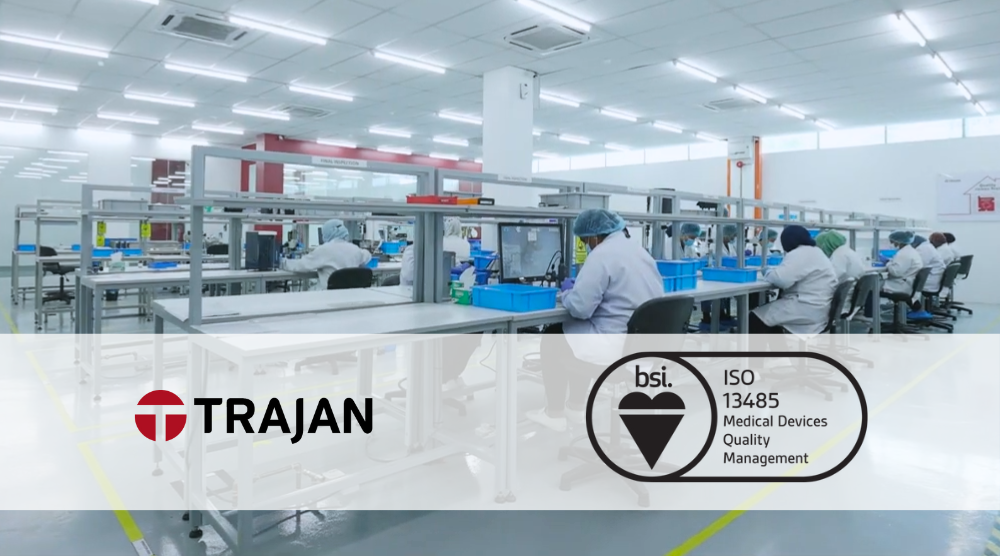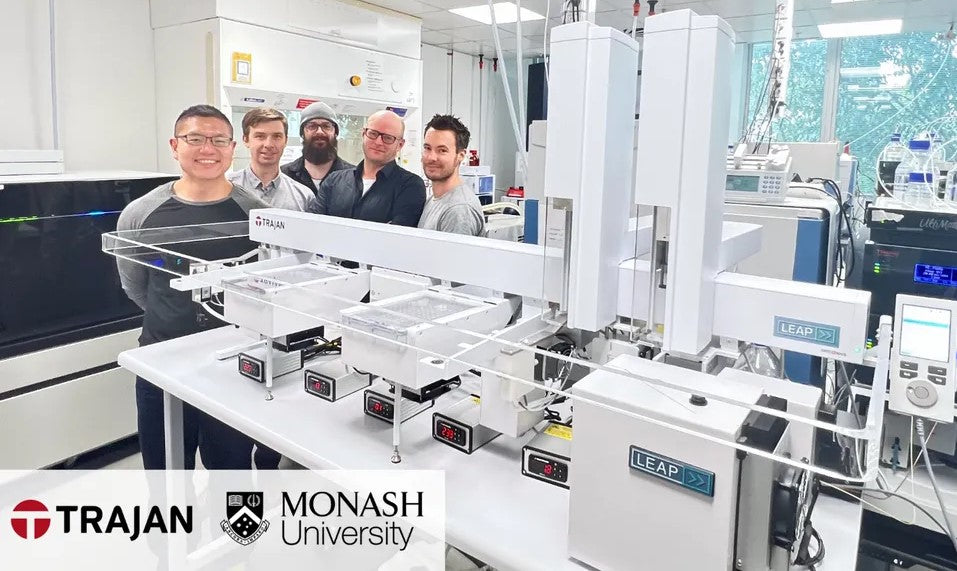Driving analytics forward, meticulously and solution-focused
Since 2010, Axel Semrau, now part of the Trajan family, has enabled the automated determination of MOSH/MOAH in food, feed, beverages, and packaging.
By maintaining close contact with users, the CHRONECT Workstation MOSH/MOAH has been continuously enhanced.
In this way, a unique system has been created step by step and always at the cutting edge of technology. Our most recent advancement is the automation of the entire sample preparation with saponification and improved epoxidation, which opens up unprecedented possibilities.
2011 – 2-channel setup
Why choose MOSH or MOAH when you can measure both simultaneously? Simultaneous measurement of MOSH and MOAH on two channels doubled the effective sample throughput time - while maintaining the same quality!
2016 – Automatic epoxidation
While classical epoxidation with mCPBA in dichloromethane could only be performed by trained lab personnel, the switch to ethanol allowed for much higher robustness. A valuable side effect: The whole process was also much easier to automate! In the meantime, this method has found its way into all current standards.
2018 – Automatic AlOx Cleanup
You name it, we've done it: The automated clean-up of the MOSH fraction to remove interfering n-alkanes was a logical addition to the sample preparation portfolio. This development is now also part of the official methods.
2022 – Automated workflow with saponification and improved epoxidation
The world is calling for even lower limits of quantification, especially for MOAH, particularly due to the challenging matrices of tropical vegetable oils. These are two simultaneous problems that needed to be addressed and solved. The automatic saponification of high sample amounts allows a significant improvement of the limits of quantification (≤1 mg/kg). The new epoxidation, tested especially for tropical vegetable oils, allows for the first time a substantial reduction of biogenic interfering substances that in the past often prevented a reliable determination of MOAH. In combination with the AlOx-Cleanup, a workflow has been created which, for the first time in the history of MOSH/MOAH analysis, allows fully automated analysis of vegetable oils.
 Dr. Marco Nestola, Head of R&D at Axel Semrau
Dr. Marco Nestola, Head of R&D at Axel Semrau
This was driven and made possible by Dr Marco Nestola. Prior to his role as head of research and development at Axel Semrau, he was active in the field of MOSH/MOAH analysis and strived to improve and advance it.
His latest paper, "Automated workflow utilizing saponification and improved epoxidation for the sensitive determination of mineral oil saturated and aromatic hydrocarbons in edible oils and fats," has been published in the Journal of Chromatography and is available to download for free.



